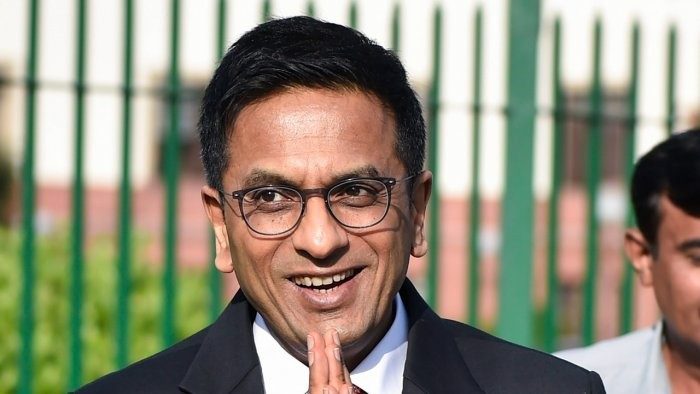
Social media one of the biggest challenges judges face, says CJI Chandrachud

Chief Justice of India DY Chandrachud — who took charge as the 50th Chief Justice of India on November 9 – said on Saturday that social media is one of the biggest challenges being faced by the judges of constitutional courts.
Chief Justice Chandrachud, while speaking at the 20th edition of the Hindustan Times Leadership Summit in New Delhi about the different kinds of cases that come up in the top court, said that one of the foremost challenges for the judges was of expectations.
Also read: Chandrachud: The ‘dissenting judge’ who takes over as 50th CJI today
Constant evaluation
On social media, he said: “Everything said by a judge in course of a case hearing is not what is the final view… So there is a free-flowing dialogue when a case is heard. Realtime reporting — on quotes by judges — is put out on Twitter or Telegram and Instagram and you are constantly evaluated.”
“If a judge keeps quiet it will have a dangerous effect on the decision-making,” the Chief Justice said.
He highlighted the role of technology, which he said has “allowed us to replace the model where citizens accessed courts, allowing courts to access litigants.” Technology has helped judges take a relook at the traditional ways of working, he was quoted by Hindustan Times.
E-court services
Pointing out that e-court services now reach not just to metros but villages, the Chief Justice said, “We need to refashion ourselves, recoup and rethink how we adapt to (the) challenges of our age. We live in a country where access to the internet is not robust.”
Chief Justice Chandrachud also spoke about live-streaming of cases in high courts and the top court. “You generate a sense of responsiveness to citizens. We need to live stream proceedings of district judiciary as it is the first interface for citizens. Citizens are entitled to know the mind of judicial functioning. One of the greatest dangers for institutions in a constitutional democracy is to be opaque,” he said.

